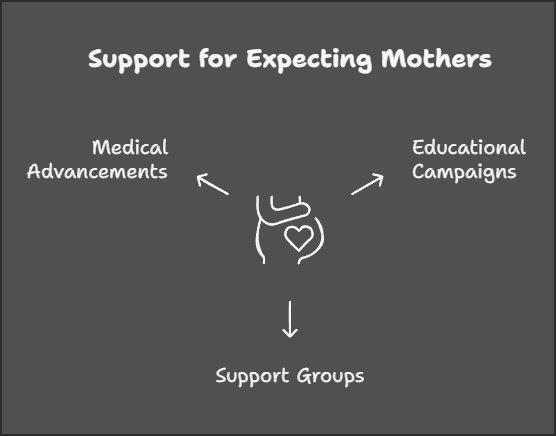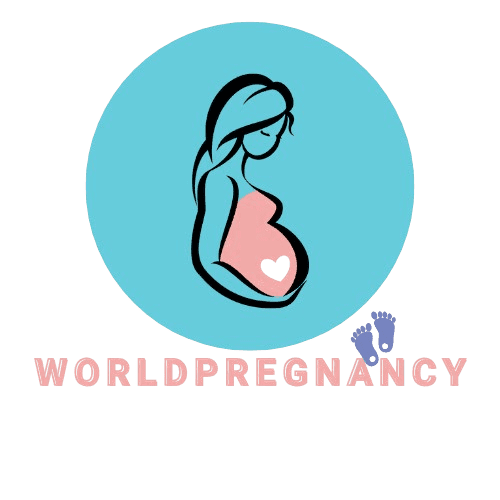Learn everything about the first trimester weeks in pregnancy, from early symptoms and baby development to essential care tips. A complete guide for expecting mothers and those planning for pregnancy.”
The Journey Begins
The first trimester of pregnancy is both magical and challenging. This phase begins a transformative journey from week 1 to the end of week 12 (sometimes considered 13 weeks). Whether you’re a first-time mom or planning for pregnancy, understanding these crucial weeks can empower you to embrace this experience with confidence and care.

However, let’s be honest—pregnancy isn’t always a smooth ride. The first trimester can feel overwhelming, from morning sickness to emotional highs and lows. That’s why we’ve created this comprehensive guide to walk you through every step, providing expert advice, practical tips, and heartfelt support.
Challenges of the First Trimester
The first trimester is often the most critical yet least understood phase of pregnancy. It is a time of rapid changes, both physically and emotionally. Let’s explore the common struggles women face during this period:
1. Physical Symptoms
Your body undergoes significant changes to support your baby’s development. Here are some of the most common first-trimester symptoms:
- Fatigue: Progesterone surges can exhaust you, even with adequate rest.
- Nausea and vomiting: Often known as “morning sickness,” this can occur at any time of the day and vary in intensity.
- Tender Breasts: Hormonal shifts lead to sensitivity, swelling, and discomfort.
- Frequent Urination: The expanding uterus presses against your bladder, increasing bathroom visits.
- Food Aversions and Cravings: Hormones influence sudden food dislikes and unusual cravings.
2. Emotional Struggles
Pregnancy affects not just your body, but also your emotions. The first trimester can be especially overwhelming due to:
- Mood Swings: Hormonal changes may trigger sudden shifts in emotions.
- Anxiety: Concerns about miscarriage and health complications can heighten stress levels.
3. Lack of Awareness
Many women face difficulties due to a lack of information or access to resources:
- Delayed Pregnancy Confirmation: Some women realize they are pregnant late, missing early prenatal care.
- Misinformation: The internet is flooded with conflicting pregnancy advice, leading to confusion.
- Limited Healthcare Access: Women in remote areas may struggle to find quality prenatal care.
Real-Life Story: A Mother’s Experience
“During my first trimester, I felt completely unprepared for the fatigue and nausea. I thought I should be more excited, but instead, I was overwhelmed. Talking to other moms in my support group helped me feel less alone.”–Maria, First-Time Mom.
Solutions and Support for Expecting Mothers
Communities and organizations worldwide are working to ensure that expecting mothers receive the education and support they need. Here’s how:
1. Educational Campaigns
Organizations like the World Health Organization (WHO) and UNICEF provide free resources on prenatal care and nutrition. Digital tools like BabyCenter and What to Expect offer week-by-week pregnancy tracking, expert advice, and forums for moms to connect.
2. Support Groups
- Local Communities: Hospitals and clinics offer prenatal classes and support groups.
- Online Communities: Platforms like Reddit, Facebook, and Tommy provide spaces for women to share experiences and seek support.

3. Medical Advancements
- Early Prenatal Screenings: Ultrasounds and blood tests can detect potential complications.
- Telemedicine: Apps like Amwell and Teladoc connect women in remote areas with healthcare professionals.
Real-Life Impact: A Mother’s Story
“Living in a rural area, I had limited access to doctors. Telemedicine allowed me to consult with a physician and get essential prenatal care.”–Emily, Expecting Mother.
Actionable Tips for a Health First Trimester
Navigating the first trimester can be easier with the right strategies. Here are some practical tips:
1. Prioritize Prenatal Care
- Schedule your first prenatal visit as soon as you confirm your pregnancy.
- Take prenatal vitamins with folic acid, iron, and DHA for your baby’s development.
2. Manage Symptoms
- For Nausea: Eat small, frequent meals and try ginger tea or crackers.
- For Fatigue: Take naps and maintain a relaxing bedtime routine.
- For Tender Breasts: Wear a comfortable, supportive bra.
- For Frequent Urination: Stay hydrated but limit fluids before bedtime.
3. Stay Informed
- Use trusted sources like Mayo Clinic and the American Pregnancy Association for accurate pregnancy information.
- Join pregnancy support groups to connect with other expecting moms.
4. Practice Self-Care
- Exercise: Engage in light activities like prenatal yoga or walking.
- Stress Management: Try meditation, deep breathing, or journaling.
- Healthy Diet: Eat nutrient-rich foods and avoid raw or undercooked foods and high-mercury fish.
Real-Life Tip: A Mother’s Advice
“Eating small meals and taking short naps helped me manage nausea and fatigue. Online support groups also reassured me that I wasn’t alone.” – Jessica, Second-Time Mom.
FAQ Section: Addressing Common Concerns
The first trimester is filled with questions and uncertainties. To help you navigate this phase with confidence, we’ve compiled answers to some of the most frequently asked questions about the first trimester weeks in pregnancy.
1. Is the first trimester until week 12 or 13?
The first trimester typically ends after week 12. However, some sources consider it to extend until week 13. This slight variation depends on how healthcare providers calculate pregnancy timelines. Regardless, the first trimester is a critical period for fetal development.
2. What is the most critical week of the first trimester?
The most critical weeks are weeks 4 to 10. During this time, the baby’s major organs and body systems begin to form. This is when the fetus is most vulnerable to external factors like infections, medications, or harmful substances. Taking extra care during these weeks is essential for healthy development.
3. Which week is the hardest in the first trimester?
Many women find weeks 6 to 8 the most challenging. This is when symptoms like morning sickness, fatigue, and hormonal changes peak. However, every pregnancy is unique, and some women may experience difficulties earlier or later in the trimester.
4. What are the danger signs in the first trimester?
While some discomfort is normal, certain symptoms require immediate medical attention. Seek help if you experience:
- Severe abdominal pain or cramping.
- Heavy bleeding (similar to a menstrual period).
- Persistent vomiting that prevents you from keeping food or liquids down.
- Fever or chills, which could indicate an infection.
- Dizziness or fainting spells.
These could be signs of complications like miscarriage, ectopic pregnancy, or other serious conditions.
5. Can I exercise during the first trimester?
Yes, exercise is generally safe and beneficial during the first trimester, as long as you follow these guidelines:
- Opt for low-impact activities like walking, swimming, or prenatal yoga.
- Avoid high-intensity workouts, contact sports, or activities with a risk of falling.
- Stay hydrated and avoid overheating.
- Always consult your doctor before starting or continuing any exercise routine, especially if you have a high-risk pregnancy.
6. What foods should I avoid during the first trimester?
To protect your baby’s development, avoid:
- Raw or undercooked meats, eggs, and seafood (risk of bacteria like salmonella).
- Unpasteurized dairy products (risk of listeria).
- High-mercury fish like shark, swordfish, and king mackerel.
- Caffeine in excess (limit to 200 mg per day, about one 12-ounce cup of coffee).
- Alcohol and smoking can harm fetal development.
7. When can I hear my baby’s heartbeat?
Most women can hear their baby’s heartbeat for the first time during an ultrasound at around weeks 6 to 8. However, it may take until week 10 or 12 in some cases, depending on the type of ultrasound and the position of the baby.
8. What vitamins should I take during the first trimester?
The most important vitamins and supplements include:
- Folic acid (400–800 mcg daily) to prevent neural tube defects.
- Iron to support increased blood volume.
- Calcium and Vitamin D for bone development.
- DHA (an omega-3 fatty acid) for brain and eye development. Always consult your doctor before starting any supplements.
9. Is it normal to feel anxious during the first trimester?
Yes, it’s completely normal to feel anxious, especially if this is your first pregnancy or if you’ve experienced complications in the past. Hormonal changes, fear of miscarriage, and the unknowns of pregnancy can all contribute to anxiety. Talking to your doctor, joining a support group, or practicing mindfulness techniques can help.
10. When should I announce my pregnancy?
There’s no right or wrong time to announce your pregnancy. Many women wait until the end of the first trimester (around week 12) when the risk of miscarriage decreases. However, the decision is entirely personal—some women choose to share the news earlier with close family and friends for support.
Statistics and Research Data
Understanding the first trimester of pregnancy is not just about personal experiences—it’s also about the broader picture painted by research and data. Here are some key statistics and findings from reputable organizations that shed light on the challenges and importance of early pregnancy care:
1. Early Prenatal Care Reduces Complications
- According to the World Health Organization (WHO), early prenatal care can reduce the risk of complications by up to 40%. Regular check-ups during the first trimester help identify and address potential issues like gestational diabetes, high blood pressure, or infections before they become serious.
2. Anxiety During the First Trimester
- A study by UNICEF found that 1 in 4 woman’s experiences anxiety during the first trimester. Hormonal changes, fear of miscarriage, and the unknowns of pregnancy can contribute to heightened stress levels. This highlights the need for mental health support during early pregnancy.
3. Morning Sickness Prevalence
- The American Pregnancy Association reports that 70% of women experience morning sickness during the first trimester. While it’s often called “morning sickness,” nausea and vomiting can occur at any time of the day. For most women, symptoms subside by the second trimester, but some may experience them throughout their pregnancy.
4. Miscarriage Rates
- Research from the Mayo Clinic: About 10–20% of known pregnancies end in miscarriage, with the majority occurring during the first trimester. This statistic underscores the importance of early prenatal care and awareness of warning signs.
5. Folic Acid and Neural Tube Defects
- CDC (Centers for Disease Control and Prevention) data: Taking 400–800 mcg of folic acid daily before and during early pregnancy can reduce the risk of neural tube defects (like spina bifida) by up to 70%. This is why prenatal vitamins are strongly recommended during the first trimester.
6. Telemedicine and Access to Care
- A study published in the Journal of Telemedicine and Telecare: Telemedicine has improved access to prenatal care for women in rural or underserved areas, with 85% of participants reporting satisfaction with virtual consultations. This is especially important during the first trimester, when early interventions can make a significant difference.
7. Exercise and Pregnancy Outcomes
- Research from the American College of Obstetricians and Gynecologists (ACOG): Women who engage in light to moderate exercise during the first trimester have a lower risk of gestational diabetes and are more likely to maintain a healthy weight throughout pregnancy.
8. Mental Health and Pregnancy
- A study by the National Institute of Mental Health (NIMH): 15–20% of women experience mood disorders like depression or anxiety during pregnancy, with the first trimester being a particularly vulnerable time. Early intervention and support can significantly improve outcomes for both mothers and babies.
Conclusion: You’re Not Alone
The first trimester is a time of immense change, both physically and emotionally. From the excitement of seeing that positive pregnancy test to the challenges of morning sickness and fatigue, this phase is a rollercoaster of emotions and experiences. But remember, you’re not alone on this journey.
With the right information, support, and care, you can navigate these weeks with confidence and joy. Whether it’s leaning on your healthcare provider, joining a support group, or simply taking time for self-care, every step you take is a step toward a healthier, happier pregnancy.
